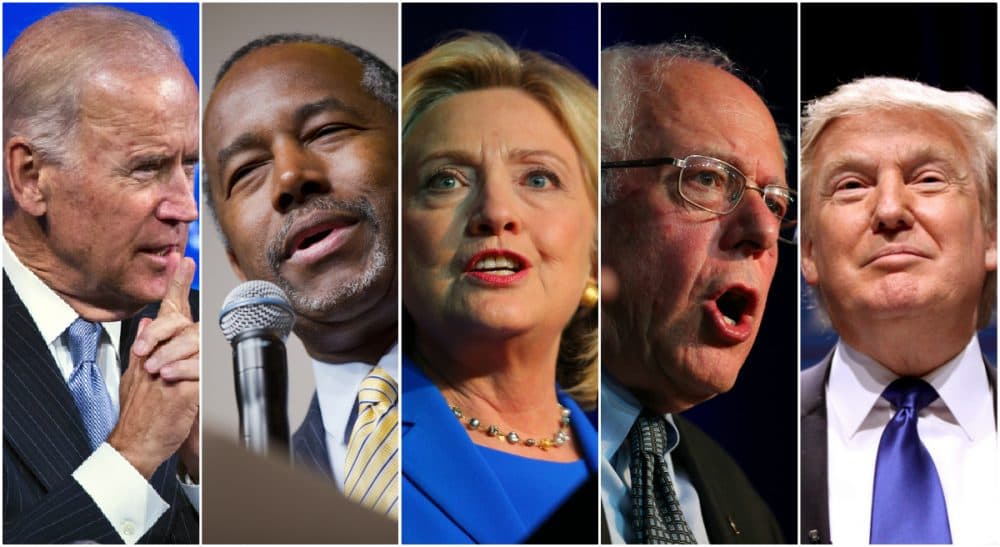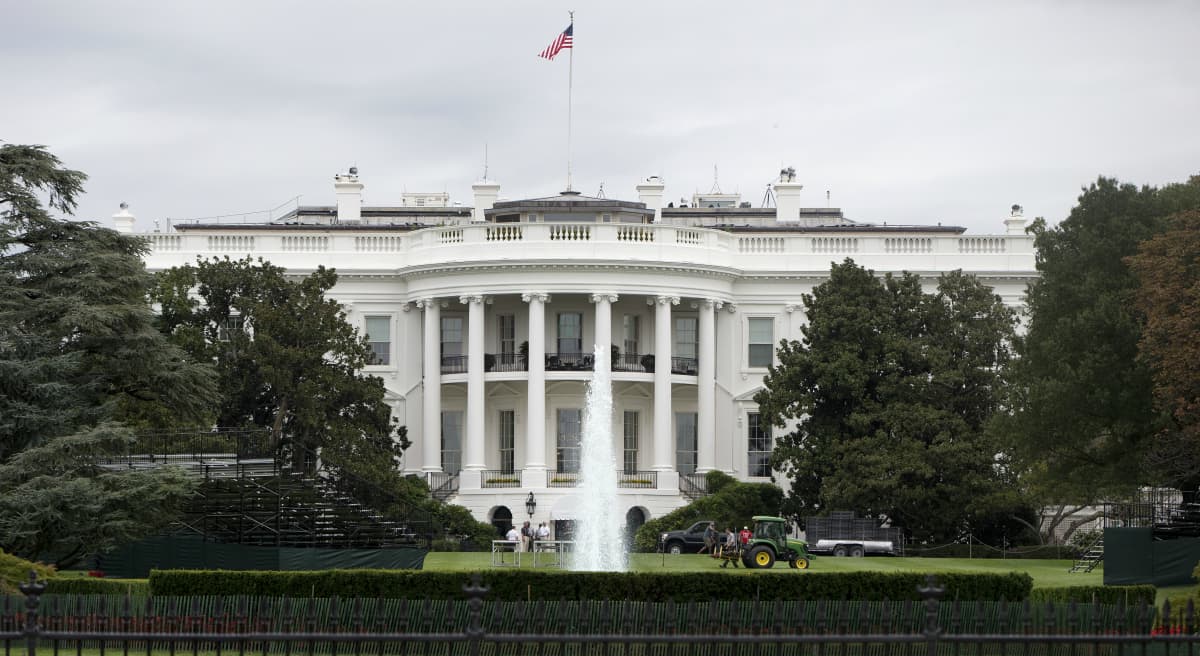Advertisement
Election 2016: Where Things Stand Today, And Why This Race Could Be A Game Changer

The official presidential campaign season doesn’t kick off for another three months, with the February 1 Iowa Caucus. From one point-of-view, the mishegas of the summer and fall has been nothing but a pre-game show, the trash-talking, speculation and hyperbole preceding any big game. In truth though, much has happened: Fortunes have risen and fallen, the field has firmed up, and there is an increasing sense that the 2016 presidential election might truly be consequential, potentially one of those “realigning” elections so beloved by political scientists. To wit:
You’re outta here! Both the Democratic and Republican fields are about to narrow sharply.
On the Democratic side, we started with one — Hillary Clinton — and only slowly did the number balloon to five (and perhaps, some hoped, Joe Biden’s possible entrance might make six). The GOP, on the other hand, had such a plethora of candidates (17!) that the debates had to be split in two — a top card and an undercard. On both fronts, things are starting to change.
there is an increasing sense that the 2016 presidential election might truly be consequential, potentially one of those 'realigning' elections so beloved by political scientists.
The latest CNN poll, from October 17, shows three of the Democrats with almost impossibly low numbers. Martin O’Malley, Jim Webb and Lincoln Chafee (who’s “dog ate my homework” response to his vote on Glass-Steagall may well be one of the most embarrassing moments in debate history) have support that hovers at one percent or less. None of the three has a credible path to the nomination. Webb is now exiting, but saying he may run as an independent (good luck with that...). The other two should throw in the towel as well. Indeed, not doing so may itself be a comment on their fitness, since an ability to assess and make good judgments seems a necessary credential for the job. Meanwhile, Biden has opted out of the race. Really, we’re now down to just two.
Meanwhile, the GOP has already seen two candidates drop out (Rick Perry and Scott Walker). Eight others seem to be near death’s door. Mike Huckabee, Rand Paul, John Kasich, Chris Christie, Bobby Jindal, Rick Santorum, George Pataki and Lindsey Graham are all polling at five percent or less. Of those, perhaps Christie and Kasich hang on for a while (if only because both, as more mainstream candidates, think they would benefit from the hoped-for collapse of Donald Trump and Ben Carson). Granted, even if the other six exited immediately, we’d still have a bloated field of nine. At least, though, there’d no longer be a need for an undercard.

It’s Hill and a player to be named later. Clinton will be the Democratic nominee but the GOP remains a cipher.
I’m with the conventional wisdom here. Clinton crushed in the first Democratic debate and the poll numbers show that: her numbers are trending up while Bernie Sanders is trending down. With support at 47 percent, she’s nearing a majority. With Biden no longer a factor, her numbers will only improve. All hail!
Meanwhile, on the Republican side, it’s no longer impossible that the unthinkable might happen. Trump or Carson really could be the nominee, a circumstance that would (to use another historical analogy) likely be the GOP's version of George McGovern. I still think the Republicans come to their senses, picking a more mainstream candidate like Jeb Bush or John Kasich. But if they don’t, the Democrats romp.
the status quo has nothing to worry about when voters are disengaged. But if they start paying attention -- and that seems to be the case now -- there’s no telling what might happen.
People care! They really care! The two GOP debates and the Democratic debate all had record-high viewership. For the GOP, Donald Trump is claiming credit, saying he’s a “ratings machine.” On the Democratic side, no one is being so crass, but some give Bernie Sanders credit; potential voters are curious, runs the thinking: just exactly who is this white-haired, wild-haired man?
There’s something to be said for celebrity and novelty as drivers for viewership. But that’s not what’s really going on. This election, still over a year away, is becoming a preoccupation, a topic around the water cooler and family dinners. The issues pushed hardest by Sanders — income inequality and the fate of the middle class — are now a mainstream concern that even Republicans are talking about. Folks are worried about broken politics in Washington, the influence of big money and the United States’ standing in world affairs. Split politics, with one party controlling the Congress and another the White House, isn’t working. All of this suggests a real possibility for a political sea-change, a realigning election along the lines of Franklin Roosevelt or Ronald Reagan. Forget the White House: members of Congress too may find themselves under siege. The status quo has nothing to worry about when voters are disengaged. But if they start paying attention — and that seems to be the case now — there’s no telling what might happen.
